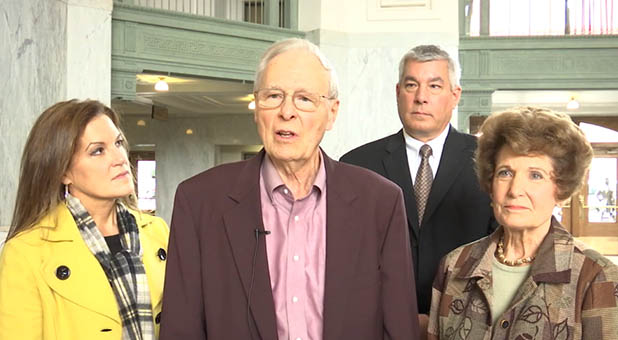Can a Pharmacist Refuse to Provide Abortion-Inducing Drugs?
Less than a month after the U.S. Supreme Court heard oral arguments in a dispute over whether the Obamacare contraceptives mandate applies to religious nonprofit organizations, the court has been asked to hear another case where the “right” to certain medication is at odds with Christians who do not want to provide them.
The high court has been asked to decide, specifically, if pharmacists must provide abortion-inducing drugs against their deeply held religious views. And if they must, does those pharmacists’ refusal to do so “trample upon the rights of others who don’t share the same religious beliefs,” as pro-abortion activists have asserted.
The central question in the case stems from the fourth-generation Christian-owned Ralph’s Thriftway in Olympia, Washington. The Stormans family, which owns and operates the neighborhood grocery store, has said their Christian faith informs business decisions about their stores.
That includes their decision to not stock the Plan B “morning-after” pill, and similar abortifacient drugs in Ralph’s Thriftway’s pharmacy.
Ten years ago, Kevin Stormans, president of the family-owned company, was asked why he didn’t carry Plan B in his pharmacy. After researching the drug, however, he learned the FDA warns it could prevent implantation of a fertilized egg, thereby ending a human life after conception.
Believing life to be sacred, the Stormans family knew they couldn’t stock the drug because of their religious beliefs. Instead, employees refer customers to more than 30 nearby pharmacies that regularly carry it. At the time, that was entirely legal under Washington state regulations.
But that wasn’t good enough for Planned Parenthood and pro-abortion activists. They continued to “test-shop” the store, asking for Plan B, then filing complaints with the State of Washington. They began protesting the store, blocking its entrance, and then launched a boycott.
They also applied pressure to the state pharmacy—with the pro-abortion governor eventually replacing two commission members who still refused to go along with their agenda—to have the regulations changed to make the Stormans’ actions illegal. Any other kind of referral was allowed, except those made on religious grounds.
The Stormans were faced with only three options:
- sell Plan B, thereby violating their personal and deeply held religious beliefs,
- close the pharmacy, shuttering a more than 70-year-old business, or
- file a lawsuit against the state regulations.
They were joined by two other pharmacists, Rhonda Mesler and Margo Thelen, in a lawsuit filed by attorneys working with the Alliance Defending Freedom. Following a 12-day trial in which 22 witnesses and nearly 800 exhibits were introduced, the federal court ruled in the Stormans’ favor.
“[T]he court ruled that the Pharmacy Commission cannot force the family-owned pharmacy and two pharmacists to choose between their professions and their religious beliefs,” the ADF announced in a press release at the time. “The Court found that no customer has ever been unable to obtain timely access to Plan B or any other drug due to religious objections. It also held that the rules were ‘drafted for the primary—perhaps sole—purpose of forcing pharmacies (and, in turn, pharmacists) to dispense Plan B over their sincerely held religious beliefs,’ and are, as a result, unconstitutional. “That lower court opinion, however, was reversed by the Ninth Circuit Court of Appeals. The ADF said the implications of that reversal were wide-ranging. “Health care providers have enjoyed the ability to engage in facilitated referral for many years,” it said. “These kinds of referrals are often the best means of meeting a patient’s needs in a timely fashion. The Ninth Circuit ruling prohibits pharmacists from engaging in facilitated referral, forcing pharmacies to stock and dispense drugs demanded by the state and/or patients. It also conflicts with the position of 34 pharmacy organizations, including the American Pharmacist Association. These groups have called the regulations at issue ‘truly radical’ and ‘grossly out of step with state regulatory practice.'” As a result, ADF and its attorneys filed a petition with the Supreme Court, asking them to hear the case. They are supported by the Becket Fund for Religious Freedom. A reply from the high court is expected at any moment. ADF senior counsel Kristen Waggoner said “it will be the first time we’ve forced healthcare providers to participate in the taking of human life,” if the Supreme Court doesn’t find the Washington state regulations unconstitutional. By not allowing religious objectors to make such referrals, the regulations violate their free exercise rights under the First Amendment, she added.
“I don’t know what the end result’s going to be,” Kevin Stormans said. “But it’s clear we’re here for a purpose. I’ll just ride this ship and do the right thing and believe God’s going to use that for His glory.”















































